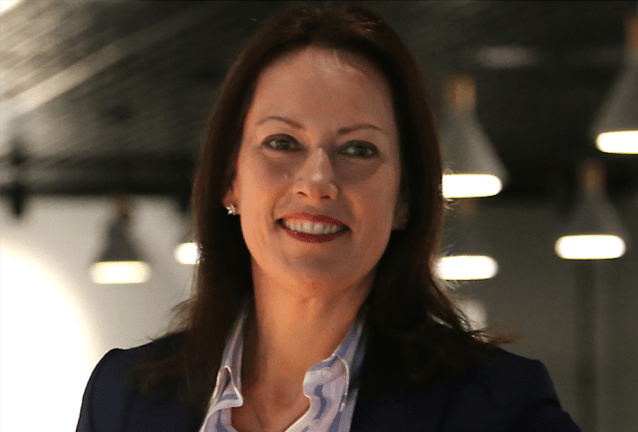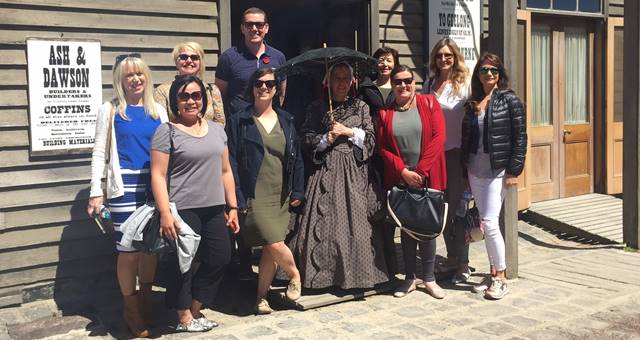
A recent industry survey revealed that most event planners agree events today use more technology, are planned with shorter lead times, have smaller attendance, and most include the option to attend remotely.
According to Cliftons Event Solutions chief executive officer, Vanessa Green, the events industry is having a resurgence, but there’s no doubt that things have not – and will not – return to how they were pre-2020.
As the business and events sector adapts, Green shares her insights on the key trends expected to shape meetings, conferences and business events in 2023.
Technology is continuing to drive events
A whopping 78 percent of events professionals agree that events today use more technology than pre-2020, which we think will only continue in 2023. There’s a demand for digital and hybrid events, with attendees and presenters expecting options for interactivity and engagement.
In addition, mobile event apps are growing in importance, with organisers and attendees expecting technology solutions for event registrations, scheduling, logistics, interactivity and more. Part of our event management approach includes access to leading-edge event platforms that can provide a single point of contact for event organisers and attendees (including presenters and sponsors).
However, in our high-tech environment, the importance of person-to-person isn’t going anywhere, particularly for B2B organisations. With only 10 percent of B2B buyers purchasing online, the need for human connection remains. Face-to-face events play a critical role, enabling the ability to support interaction and connection. Events create an engaging, interactive experience for any digital and hybrid event formats.
In addition, research from IACC and its Meeting Room of the Future November 2022 report suggests that a key reason for hybrid events is accommodating remote speakers and mitigating travel issues for attendees.
Small is beautiful
Face-to-face events are definitely back, but event organisers are seeing trends for lower in-person attendance figures. Venues that can be tailored to a range of event participants are in-demand, with event organisers needing flexibility based on final registrations.
Networking remains a crucial driver for encouraging people to attend events in person, with it being the number one factor in-person meeting attendees value most. At Cliftons, we’re making this easier with venues that can provide on-site networking events, breakout spaces and a range of space configurations that can adapt to various needs.
Shorter lead times and shorter durations
75 percent of event organisers are coordinating events with less lead times, perhaps in response to the uncertainty of recent years. The need to be flexible in approaches continues, with the added reassurance of being able to adapt hybrid formats when required.
In addition, 50 percent of event organisers are planning for shorter events, with people less willing to give up large chunks of time for events. This in turn is driving trends for more numerous but more tightly targeted business events that are tailored to a specific audience.
Choose how to attend
It’s clear that now hybrid events aren’t going anywhere. People have embraced the flexibility to attend meetings, events and conferences in the way that works for them, with 70 percent of event organisers agreeing that there’s a need for hybrid or the option to attend remotely. This doesn’t mean face-to-face is dead, though, with only 28 percent saying their events are mostly virtual or online – the majority are continuing to plan for face-to-face events with an added option for remote participation.
In part, this shift is being driven and exacerbated by increased travel costs, with fuel prices expected to keep flight prices high. Combined with the ongoing logistical failings in the travel sector and it’s clear to see that the need for hybrid events is going to remain strong. In addition, planning for a digital or hybrid component provides event organisers with a degree of certainty after several years of flux – for example, at Cliftons, we’re able to pivot events to a hybrid or even fully digital format with as little as 24 hours notice (pending room and equipment availability).
In the drive to balance face-to-face connectivity against the environmental impact of travel, many organisations will prioritise in-person events that people travel to for conferences and client engagements. In contrast, internal events like team building and kick-off sessions will continue to rely heavily on hybrid formats as organisations look to both manage travel budgets and operational needs.
Sustainability and social responsibility remain top of mind
Consumers increasingly make decisions based on their values and look to organisations to take social responsibility seriously. For events, this means once again providing hybrid options for people looking to reduce their travel carbon footprints, prioritising recyclable or reusable materials for things like food service or donating a portion of ticket sales to charities.
Diversity and inclusion are also critical, with people looking for authenticity in the organisations they engage with. As well as bare minimum requirements like providing accessible spaces and allowing people different ways to engage based on their needs and preferences, the push to continue to ensure events have representation from a diverse range of speakers and attendees will remain.
Are you ready for 2023? No matter what the year brings, Cliftons is committed to remaining at the forefront of the events industry, adapting our services and offerings to each client and events unique needs.




